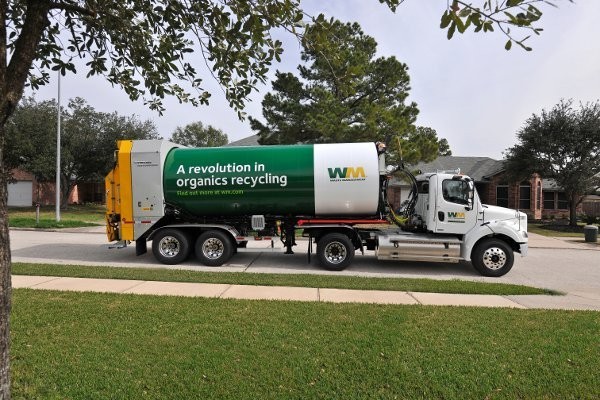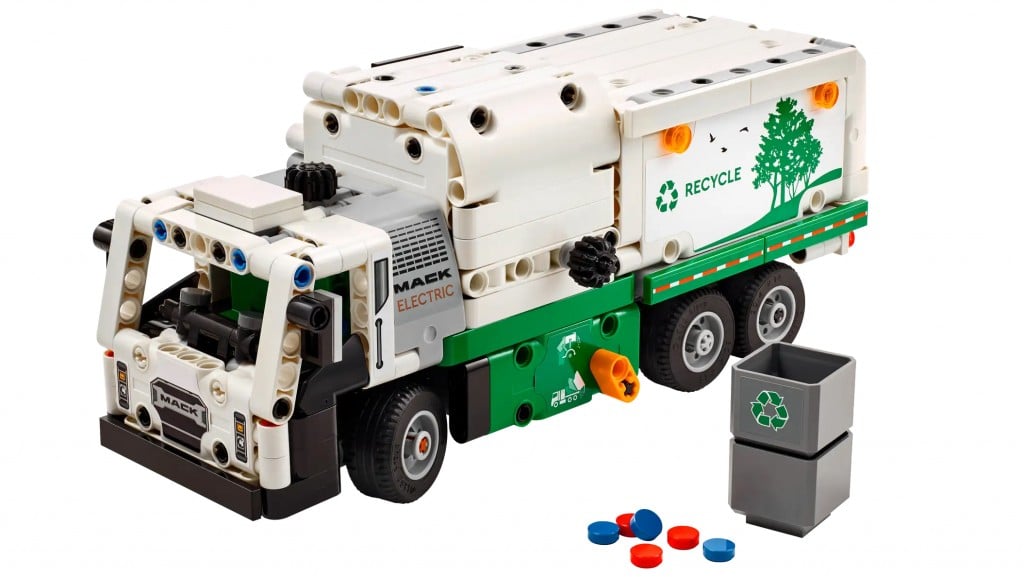Waste Management brings first Rotopress collection trailers to North America

At the end of January (2012), Waste Management, Inc. (WM) announced the start of a pilot program that will introduce Rotopress waste collection trailers for the first time in North America. The pilot program will first rollout in Houston, Texas, followed by pilot projects in San Diego and Sacramento, CA, Milwaukee, WI, and Camden, NJ.
Waste Management anticipates the program to provide greater operational flexibility and reduce trips, fuel use, greenhouse gas emissions and improved maintenance costs. The Rotopress is manufactured by Faun, a German manufacturer of waste disposal vehicles, and has been in operation across Europe for more than eight decades.
The Rotopress modular technology, combined with a decoupled tractor-trailer configuration using natural gas as its fuel source, provides a number of operational and environmental benefits to meet the challenges of a diversifying waste stream. It also reduces capital costs, exposure to rising fuel prices and vehicle emissions.
Rotopress is significantly lighter than most compaction-plate vehicles and allows the vehicle to carry up to 14 tons – generally four more tons than a conventional waste collection vehicle.
According to WM, the decoupled tractor-trailer configuration allows for better management of assets, as chassis and body can be replaced separately on a more effective schedule. In addition, these assets are decoupled, which allows for future, fuel-saving class 6 tractor operations, which will operate on natural gas.
For ease of operation, compared with a rigid vehicle, a semi-truck trailer has a 40 percent smaller turning radius making it more maneuverable, which is very desirable in residential areas with cul-de-sacs and parked cars, and in other tight areas. In the event of a breakdown, the truck and module can be separated, reducing downtime and improving utilization of trucks.
Rotopress’ unique corkscrew design that continuously moves waste to the front of the body helps prevent the rear axles from being overloaded, while keeping sufficient weight on the front axle at all times. This makes the drive smoother and reduces wear on tires. The maintenance costs related to the tractor-trailers should also be improved as there is less stress on the suspension and far fewer moving parts, compared to a conventional rear loader.
Plus, the entire Rotopress drum is soundproofed and the continuous movement of the waste eliminates noise peaks during loading. This combined with the use of natural gas engines will greatly reduce noise levels for operators and customers.
Additionally, the Rotopress does not directly press any additional liquid out of the waste, but binds it by permanently mixing it with the dry material. This operation reduces the amount of free liquid in the system, lowering damage to the body that can be caused by corrosion, and reduces leakage and odours considerably.
“Waste Management’s investment in unique and innovative fleet technologies like the Rotopress is helping us operate our core business activities more efficiently as well as reduce the environmental footprint of our fleet,” said Eric Woods, vice president, fleet and logistics at Waste Management. “The Rotopress will help contribute toward our corporate sustainability goal to increase fuel efficiency by 15 percent and decrease emissions by 15 percent by 2020. Our plan is to save 350 million gallons of fuel and reduce 3.5 million metric tons of carbon dioxide by 2020.”
WM says the introduction of the Rotopress builds on the company’s existing fleet of more than 1,400 heavy-duty trucks fueled with natural gas, and the company’s long-standing commitment to transition from diesel to natural gas trucks and build toward a zero-emission fleet. For every truck Waste Management converts to natural gas, diesel fuel use is reduced by an average of 8,000 gallons and GHG emissions are reduced by 22 metric tons annually.


